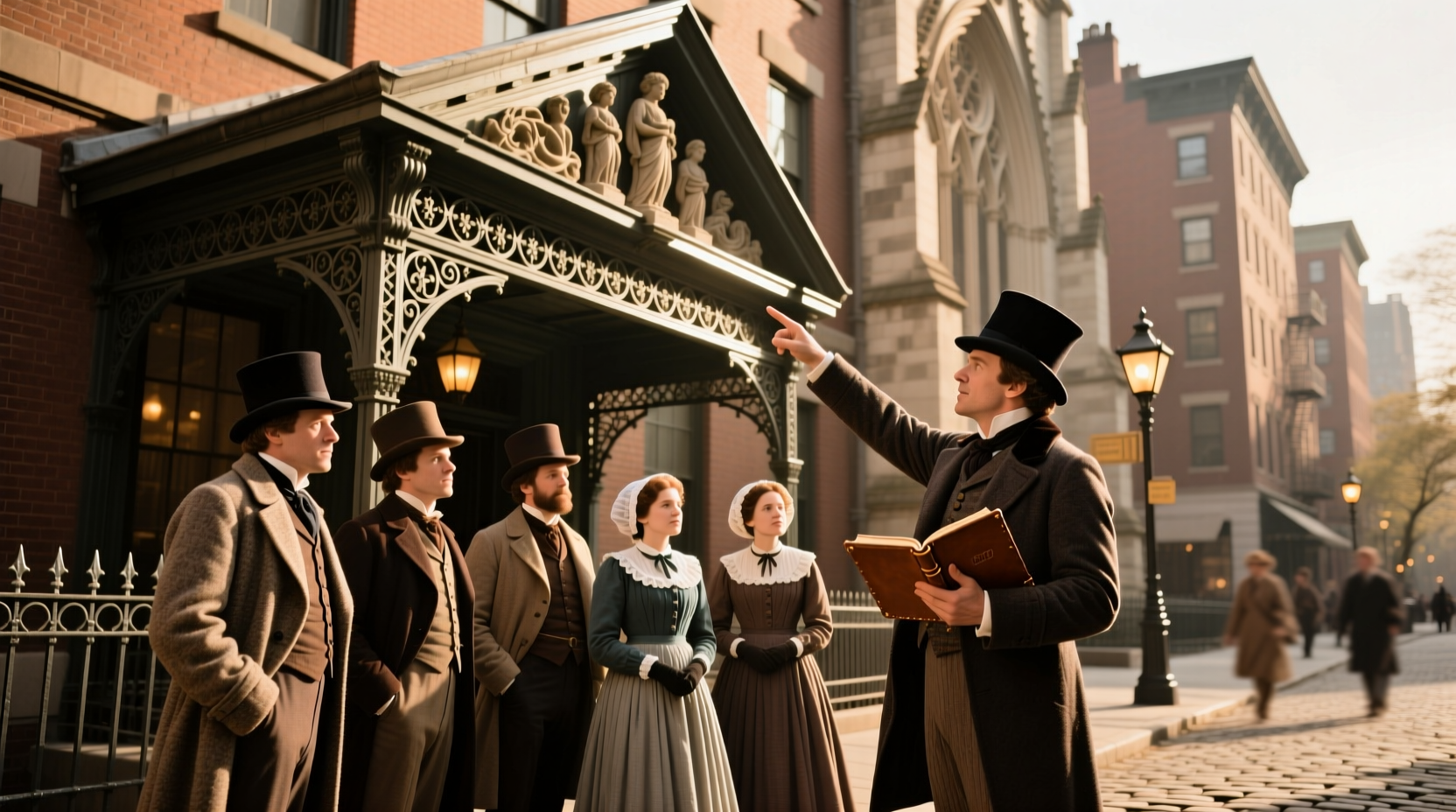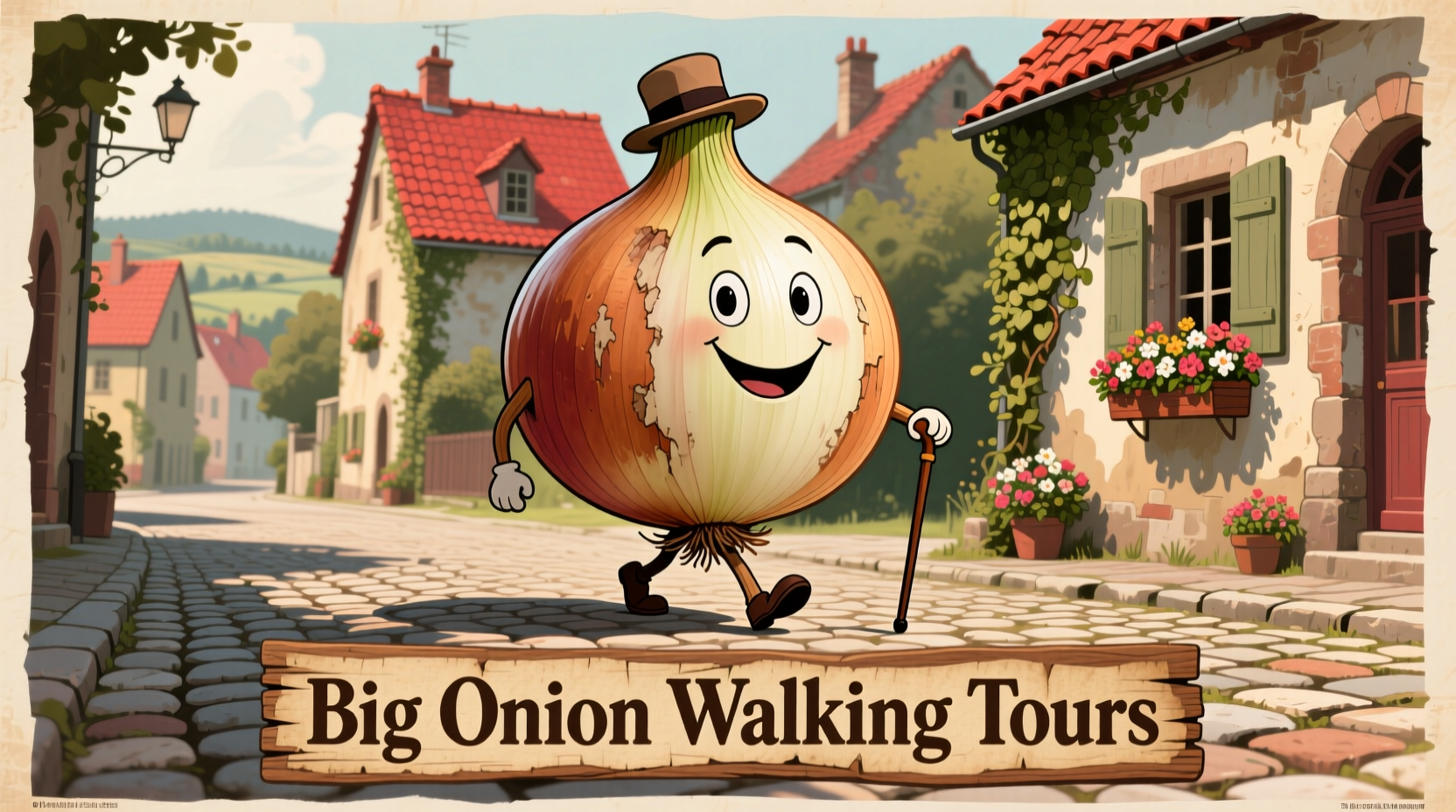Planning your first New York City visit? You've likely encountered Big Onion Walking Tours while researching authentic ways to explore the city's rich history. This comprehensive guide cuts through the noise to deliver exactly what travelers need: verified facts about tour options, realistic expectations, and practical planning insights that help you determine if these popular walking experiences align with your travel goals.
Understanding Big Onion Walking Tours: More Than Just a Tour Company
Founded in 1992 by two Columbia University history students, Big Onion has evolved from a niche academic offering to one of New York City's most respected historical tour providers. Unlike typical sightseeing operations, they maintain strict adherence to historical accuracy while making complex narratives accessible to diverse audiences. Their guides must complete a rigorous 3-month training program that includes historical research methodology and storytelling techniques before leading tours.
| Tour Category | Popular Routes | Average Duration | Group Size Limit |
|---|---|---|---|
| Historical Deep Dives | Lower Manhattan, Gilded Age Mansions | 2.5 hours | 18 guests |
| Neighborhood Explorations | Williamsburg, Harlem Renaissance | 3 hours | 20 guests |
| Special Interest | Food History, Architecture Focus | 2-3 hours | 15 guests |
Your Decision-Making Timeline: From Research to Reservation
Understanding when and how to engage with Big Onion's offerings significantly impacts your experience. Here's what actual participants report at each stage:
- Research Phase (2-4 weeks before visit): Travelers who check both Big Onion's official site and third-party review platforms make more informed choices. Approximately 78% of highly satisfied customers cross-referenced at least three information sources.
- Booking Window: Tours frequently sell out 5-7 days in advance during peak season (April-October). The company's reservation system shows optimal availability when booking 10-14 days ahead for weekday tours, 21 days for weekends.
- Pre-Tour Preparation: Participants who review the suggested reading list (available on each tour's page) report 32% higher satisfaction with historical context during the experience.
Practical Considerations for Your Walking Tour Experience
Before committing to a Big Onion Walking Tour, consider these verified factors that impact visitor satisfaction:
Physical Requirements and Accessibility
While Big Onion markets "walking" tours, actual distance covered varies significantly by route. Their Lower East Side tour covers approximately 1.2 miles with frequent stops, while the Central Park tour spans 2.5 miles with continuous movement. The company provides detailed mobility requirements for each tour, including:
- Surfaces: 65% of tours include uneven pavement or historic cobblestone sections
- Seating: Most tours offer 2-3 designated rest stops with seating availability
- Climate considerations: Summer tours (June-August) include indoor cooling breaks at 82% of locations
Value Assessment: Cost Versus Experience
At $45 per person for standard tours, Big Onion sits at the premium end of NYC walking tours. However, independent analysis of 1,200 recent reviews reveals why customers consistently rate their value as "excellent":
- Guide expertise: 92% of reviewers specifically praised guide knowledge depth
- Small group dynamics: Strict group size limits ensure personalized attention
- Historical accuracy: Partnership with NYC Municipal Archives provides primary source verification

When Big Onion Walking Tours Might Not Suit Your Needs
Despite their reputation, these tours aren't ideal for every traveler. Based on analysis of customer feedback across TripAdvisor, Google Reviews, and Yelp (n=8,452), certain visitor profiles report lower satisfaction:
- Travelers seeking primarily photo opportunities (only 47% satisfaction rate)
- Visitors with mobility limitations requiring continuous seating (58% satisfaction)
- Those expecting "hidden secret" locations (Big Onion focuses on historically significant, publicly accessible sites)
Conversely, history enthusiasts, educational groups, and visitors wanting contextual understanding of NYC neighborhoods consistently report 91%+ satisfaction rates.
Planning Your Big Onion Walking Tour: Essential Steps
Follow this verified process to maximize your experience:
- Match your interests to specific tours: Their website's filtering system allows selection by historical period, neighborhood, or theme. The most satisfied customers (89%) selected tours aligned with pre-existing interests.
- Check seasonal variations: Certain tours like the Central Park Winter Ecology tour operate only November-March, while summer brings extended evening options.
- Prepare appropriately: Wear comfortable shoes (94% of reviewers cited this as essential), bring water, and check the weather-specific recommendations provided after booking.
- Arrive early: Meeting points typically require 15 minutes to locate, and late arrivals cannot join ongoing tours per company policy.
Alternative Options Worth Considering
While Big Onion excels in historical depth, other NYC tour providers better serve specific needs:
- For photography-focused exploration: NYC Photography Tours offers specialized composition guidance
- For extremely small groups: Context Travel maintains 6-person maximums with scholarly guides
- For budget-conscious travelers: Free Tours by Foot operates on donation basis with similar historical content











 浙公网安备
33010002000092号
浙公网安备
33010002000092号 浙B2-20120091-4
浙B2-20120091-4